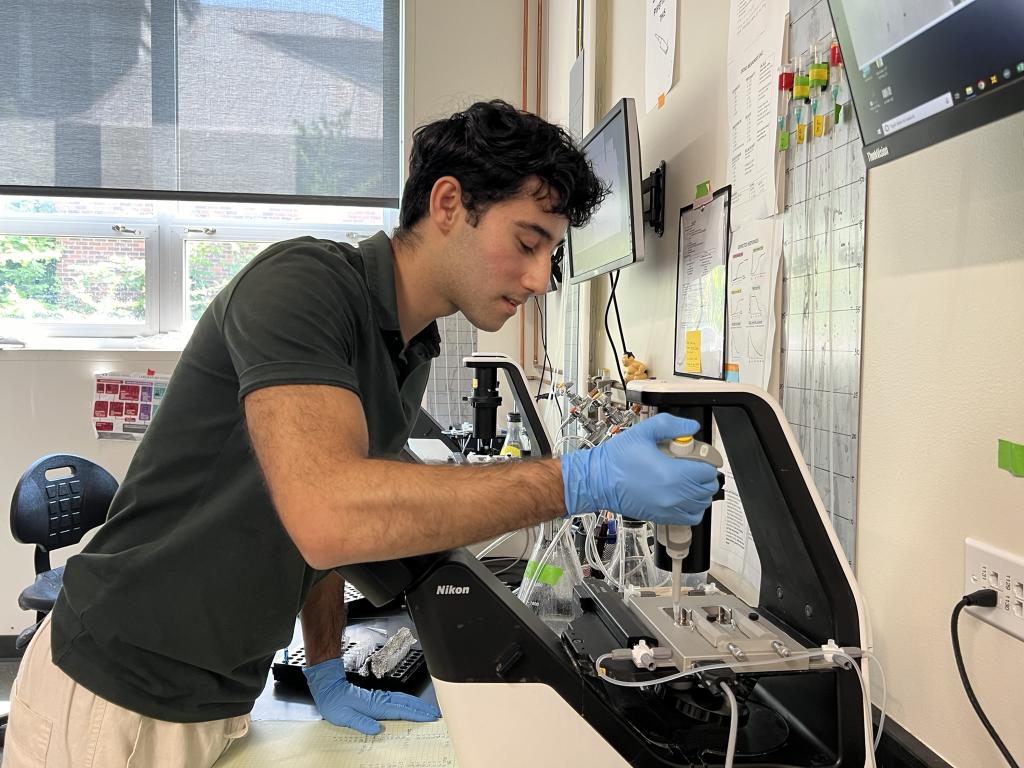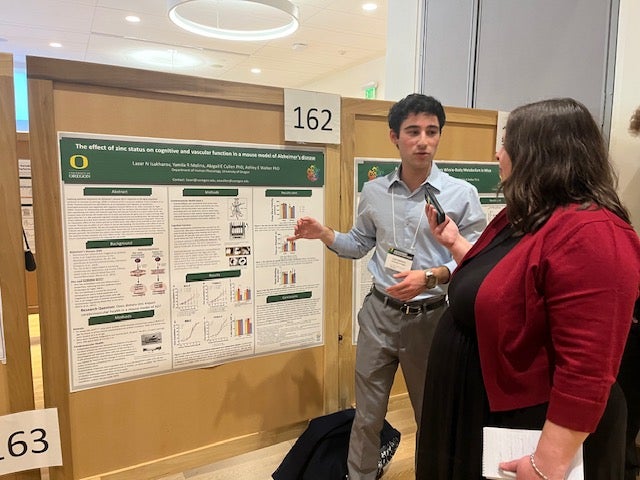
When human physiology major and Clark Honors College student Lazar Isakharov joined the Aging and Vascular Physiology Lab, post-doctoral fellow Abby Cullen knew she wanted him to work on her project. She could sense when she interview him for a position in the lab that he had the potential to become an effective researcher. The project Cullen initiated focuses on investigating how dietary health can influence the prevalence of Alzheimer’s disease and if a healthy and balanced diet of zinc can prevent symptoms.
As an honors college student, Isakharov plans on using this research for his thesis project. He participated in the VPRI Undergraduate Fellowship this summer.
The lab is run by Ashley Walker, assistant professor of human physiology. Walker said the lab’s emphasis on Alzheimer's disease originated because of recent studies showing a correlation between problems with arteries and the disease.
"The lab focuses on aging and arterial stiffness,” said Isakharov. “Within that context, we tend to focus on Alzheimer’s disease, dementias, and cognitive health.”
The project Cullen and Isakharov are working on began in 2022, but Isakharov joined in April 2023, during the spring of his freshman year.
“My project specifically, with Dr. Cullen, is looking at how zinc status, essentially different levels of zinc in the diet, impact different hallmarks of Alzheimer’s disease,” said Isakharov.
He works with a mouse model of Alzheimer’s, examining the mice’s cognition and vascular function.
Why this research matters
The researchers are focusing on zinc specifically because it is one of the most prevalent micronutrients in the human body and it interacts with “amyloid beta, a protein in the brain, which accumulates in plaques, leading to many hazardous changes, such as an increase in neuroinflammation,” said Isakharov.
Cullen and Isakharov agree that research about Alzheimer’s disease is increasingly important because the population of people older than 65 is the fastest growing segment of Americans according to the US Census. They are likely to be impacted by Alzheimer's disease or similar impairments.
“There are nearly 7 million people with Alzheimer’s right now,” said Cullen. “So that’s 7 million people and their families, and that’s 7 million people and their health care providers that are being impacted by this.”
Cullen says the number of people with Alzheimer’s is set to double within the next 25 years, which increases the need for this research.

"We have to do as much as we can now to reduce the impact of the disease on not only the patients and our aging population, but their families and our health care system,” said Cullen.
Isakharov clarified the lab isn’t trying to cure Alzheimer’s, but rather is trying to see if a diet with certain zinc levels could be "a long-term preventative method.”
His experience working in this lab has increased his interest in vasculature and cardiovascular health. This past spring, Isakharov won the top poster prize for human physiology at the Undergraduate Research Symposium, presenting this project. Moving forward, Isakharov hopes to pursue a career in the medical field and potentially continue with research. He says his experience now will influence his future work in medicine.
“Research is such a fundamental part of how modern medicine exists today,” said Isakharov. “I thought it was super important that I knew how it works and what the modern practices are because I would say a large chunk of how we practice medicine today is because of modern research practices.”
